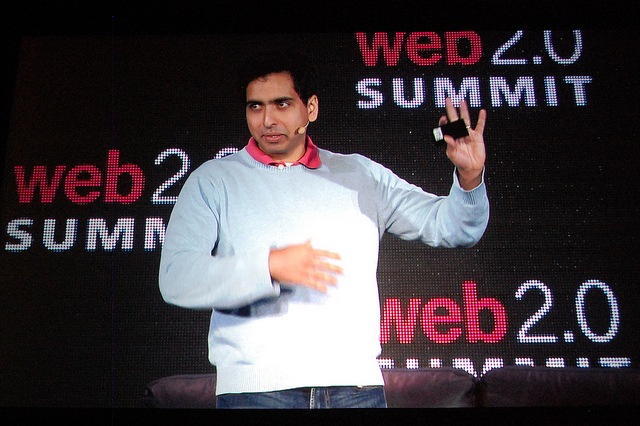Most entrepreneurs have a sense of social responsibility, and many are motivated by a desire to make the world better with their ideas. Social entrepreneurs take social responsibility a step further by focusing on social value, not profits, as they create solutions to major social problems. On the one hand, startups can learn a lot from social entrepreneurs. For example, although making money and creating shiny new things can be great, improving the human condition is a better goal.
At the same time, social entrepreneurs can learn some important lessons from startups. Jacquelline Fuller, who is Google’s Director of Charitable Giving and Advocacy, suggests three things Silicon Alley can teach social entrepreneurs: Think big, focus on the user and make data-driven decisions.
Think Big
Salman Khan, founder of Khan Academy, started with a big vision for his social venture. He wanted to bring a no-cost, world-class education to everyone, everywhere. His big idea earned him $2 million in startup cash from Google.
Today, Khan Academy receives over 6 million unique visitors per month. Students have completed over 500 million exercises and downloaded over 140 million lessons. Sal Khan thought big, and he achieved his dream.
Social entrepreneurs sometimes have backgrounds in fields like psychology, public administration and social work. Some have no post-secondary education while some have graduate social work degrees. However, because of their backgrounds, Fuller says that social entrepreneurs often bring a public sector mindset to their programs. They fail to think big, which is essential to success.
Many social entrepreneurs get funding from government grants and other traditional sources. To get grants, they have to develop small, focused projects that meet the purpose of the grant. Therefore, by its nature, the structure of grants encourages small thinking, but that is not enough. To capture more private investment in social ventures, social entrepreneurs need to think bigger. The social sector needs risk capital, but few governments can fulfill that need.
Focus on the User
Many speculative tech projects look good on the whiteboard, but they fail to deliver in the hands of the customer. Just as Silicon Alley startups go nowhere unless their product delivers a great user experience, social entrepreneurs should make sure that their ideas will actually work for the people they’re trying to serve.
Fuller cites the example of Pratham, an education foundation in India, which reaches over 5 million children every year in 20 out of 29 Indian states. Its founder, Dr. Madhav Chavan, thought big by partnering with UNICEF. Together, they’ve delivered large numbers of lessons to children in India with a special focus on children who are in school but who have low literacy levels.
Pratham pairs technology savvy with a strong understanding of local needs. Then, it works with national, state and local governments to deliver replicable and cost-effective educational solutions to India’s students. For example, Chavan started out by offering volunteer-led lessons in local temples and offices, getting lessons to students in the places that worked for them. Pratham has expanded to become India’s largest non-governmental education provider. In 2012, Chavan won the WISE Prize, which is the equivalent of the Nobel Prize in education.
Make Data-Driven Decisions
In Silicon Alley, companies live and die by data. Startups accumulate data and mine both to understand the customer and to make improvements to the product. Fuller suggests that social entrepreneurs need to learn to embrace data-driven decision-making. In the best-case scenario, they share data with funders to show that investors are getting a good return for their money.
Charity: Water provides funding for local water projects around the world, using data collected during project monitoring to ensure that funds are responsibly used. In addition to collecting data internally, they work with external assessors that independently monitor project progress and quality. At the end of a project, Charity: Water maps the completed project on Google Maps and posts the map to its website. Funders can see exactly where Charity: Water is working, the types of projects funded and the number of people helped.
Social Value
By implementing all of these lessons, social entrepreneurs can secure more private capital, better serve users and show funders that their money is well spent. After all, people who think small don’t kickstart major social change.
Image credit: CC by Kevin Krejci



